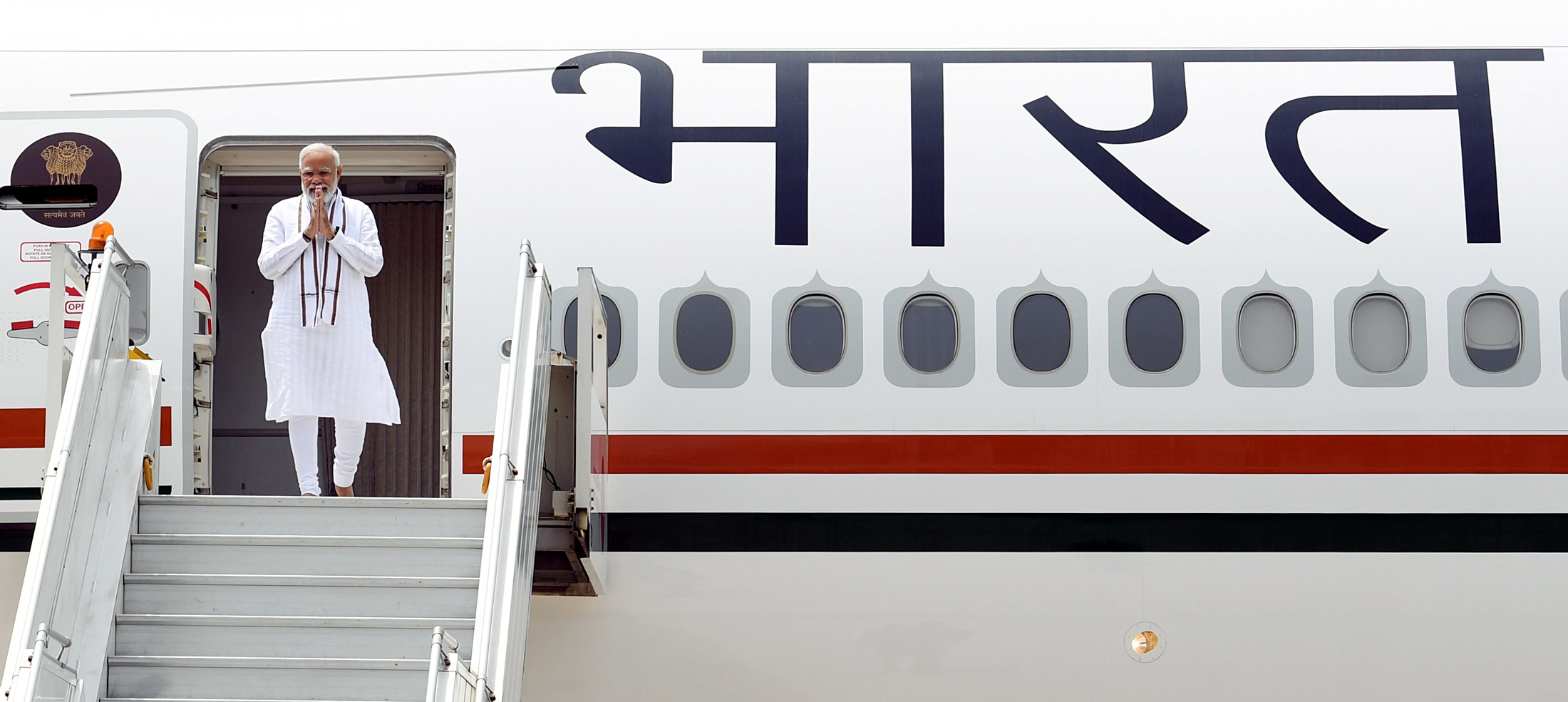‘Ukraine centric’ European leaders acknowledged India’s growing centrality in the Indo-Pacific, expressing the desire to work more closely with New Delhi.
NEW DELHI: Apart from boosting bilateral ties with France, Germany, Denmark and other Nordic countries, Prime Minister Narendra Modi’s Europe visit was productive in terms also of India’s strategy to rein in China in the Indo-Pacific and other geographies. In what came as a shot in the arm of New Delhi, Prime Minister Modi’s bilateral meetings in Europe saw all these nations of the continent setting focus on China despite their Ukraine-centric approach amid the ongoing Russian invasion. In what is being attributed to PM Modi’s diplomatic heft, the Indo-Pacific challenges resulting from Beijing’s growing assertiveness grabbed the attention of the European leaders, with all of them acknowledging India’s growing centrality in the region and expressing desire to work more comprehensively and closely with New Delhi to counter what they called deteriorating environment in the Indo-Pacific, in an obvious reference to Beijing’s belligerence.
German Chancellor Olaf Scholz and French President Emmanuel Macron in talks with PM Modi were desirous of working with India to counter coercive forces more effectively in the Indo-Pacific or anywhere else, sources said. Highly-placed diplomatic sources told The Sunday Guardian that “Though the Ukraine war was discussed prominently, PM Modi steered the discussion in the direction of Indo-Pacific, sharing several inputs exposing the unlawful
Even though the joint statements mentioned Indo-Pacific commitments of the European nations, PM Modi and External Affairs Minister S. Jaishankar always made it a point to tweet that they discussed Indo-Pacific at the bilateral meetings to highlight the importance of the topic. Jaishankar also held detailed discussions with his counterparts in Germany and France on the Indo-Pacific in context of the incidents of violation of international laws in the region, with reference to China.
Sources told The Sunday Guardian that Scholz shared some details of his meeting with Japanese Prime Minister Fumio Kishida. What is significant is that Scholz chose Japan as his first destination to visit in Asia. He did not go to China.“My trip is a clear political signal that Germany and the EU will continue to intensify their engagement in the Indo-Pacific region,” Scholz said after his meeting with the Japanese Prime Minister. Diplomats in India see it as a significant statement. Scholz also said that India and Germany are on the same page vis-à-vis Indo-Pacific issues.
PM Modi’s Europe tour began days after S. Jaishankar’s clear and blunt message to the West, asking the western countries to look beyond Ukraine. He had also confronted the western countries with the fact that they remained ignorant of the challenges that Asia had been facing.
Prime Minister Modi gave further momentum to diplomacy in Europe in his own trademark style, when he addressed Macron as his friend while hugging him tightly. President Macron and Modi then discussed various issues for around 90 minutes. Sources said that Macron spent a considerable amount of time discussing strategic issues related to the Indo-Pacific.
Jaishankar had separate interactions with his French counterpart Jean-Yves Le Drian. NSA Ajit Doval met French Defence Minister Florence Parly. Sources said that Indo-Pacific vis-à-vis Chinese assertiveness figured during the talks. “Let us know what should be done bilaterally to counter belligerence and expansionist tendencies in the Indo-Pacific,” Macron is learnt to have said to PM Modi, in a clear reference to China. According to sources familiar with meetings, the French Foreign Minister told Jaishankar that New Delhi and Paris are on the same page, while the Defence Minister said that navies of both countries will enhance frequency of exercises, keeping in mind China’s threat.
Now, these issues, including the Indo-Pacific, will be followed up in meetings between the foreign ministers and defence ministers of the two countries. Meanwhile, back home, Italy, another key European nation, has signaled its intention to increase cooperation with India in the Indo-Pacific. After meeting with Jaishankar in New Delhi, Italian Foreign Minister Luigi Di Maio exchanged views on the Indo-Pacific including some other issues, saying that Rome is keen to ramp up defence cooperation with New Delhi.
A joint statement issued after the meeting between the foreign ministers said they exchanged views on regional and global issues, including Ukraine, Afghanistan and the Indo-Pacific and discussed cooperation in multilateral forums such as the G20. The Italian minister expressed keen interest in ramping up defence cooperation with India. “The Italian minister referred to risks emanating from China’s strategic competitive moves,” sources said.

